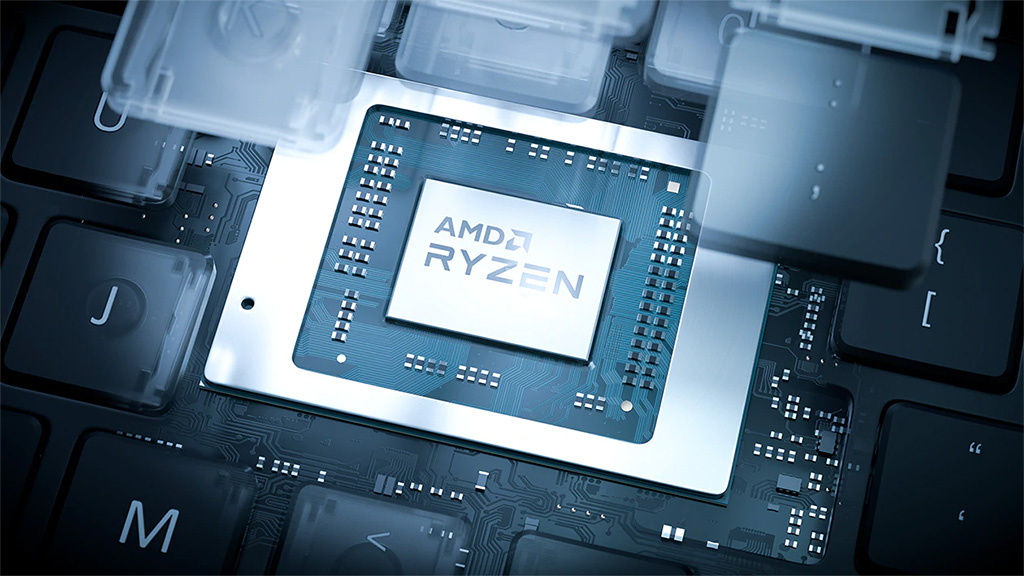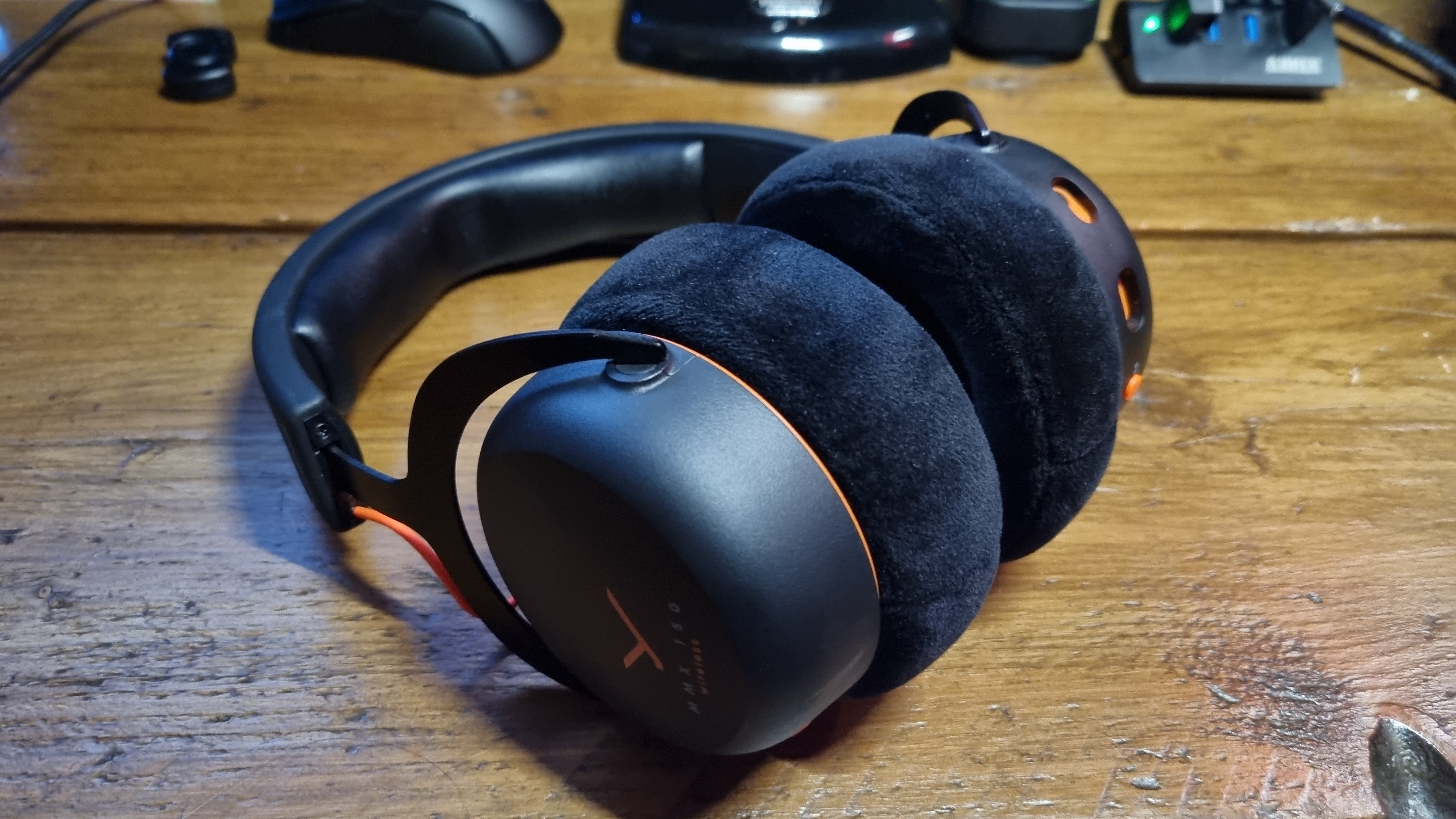AMD's next-gen laptop CPUs could be a confusing mix of architectures
Multiple leakers suggest the Ryzen 5000 mobile series will comprise both Zen 3 and Zen 2 CPUs.

Keep up to date with the most important stories and the best deals, as picked by the PC Gamer team.
You are now subscribed
Your newsletter sign-up was successful
Want to add more newsletters?

Every Friday
GamesRadar+
Your weekly update on everything you could ever want to know about the games you already love, games we know you're going to love in the near future, and tales from the communities that surround them.

Every Thursday
GTA 6 O'clock
Our special GTA 6 newsletter, with breaking news, insider info, and rumor analysis from the award-winning GTA 6 O'clock experts.

Every Friday
Knowledge
From the creators of Edge: A weekly videogame industry newsletter with analysis from expert writers, guidance from professionals, and insight into what's on the horizon.

Every Thursday
The Setup
Hardware nerds unite, sign up to our free tech newsletter for a weekly digest of the hottest new tech, the latest gadgets on the test bench, and much more.

Every Wednesday
Switch 2 Spotlight
Sign up to our new Switch 2 newsletter, where we bring you the latest talking points on Nintendo's new console each week, bring you up to date on the news, and recommend what games to play.

Every Saturday
The Watchlist
Subscribe for a weekly digest of the movie and TV news that matters, direct to your inbox. From first-look trailers, interviews, reviews and explainers, we've got you covered.

Once a month
SFX
Get sneak previews, exclusive competitions and details of special events each month!
I thought it was a good move by AMD to brand its latest Zen 3 desktop CPUs as the Ryzen 5000 series, in essence skipping right over Ryzen 4000. Going forward, this decision has the potential to make things less confusing, by aligning mobile and desktop parts based on the same architecture, with the same series labels. But all that could go out the window if, as rumored more than once, AMD opts to infuse both Zen 3 and Zen 2 into its Ryzen 5000 mobile series.
If AMD goes that route, it would be taking a page from Intel with its Core generation labels. For example, Intel brands both its 14nm Comet Lake and 10nm Ice Lake chips as 10th generation CPUs. Why? Good question, and things only get more confusing for the average buyer when wading through Y-series, U-series, H-series, and S-series (desktop) designations, and models numbers that can look like Core i7-1065G7 (Ice Lake) or Core i7-10710U (Comet Lake).
As for AMD, up to this point, its desktop and mobile chips have not been aligned under the same series branding. This goes all the way back to the original 14nm Zen architecture and AMD's first Ryzen processors:
- Zen (14nm)—Ryzen 1000 series (desktop), Ryzen 2000 series (mobile and APUs)
- Zen+ (12nm)—Ryzen 2000 series (desktop), Ryzen 3000 series (mobile and APUs)
- Zen 2 (7nm)—Ryzen 3000 series (desktop), Ryzen 4000 series (mobile and APUs)
- Zen 3 (enhanced 7nm)—Ryzen 5000 series (desktop)
AMD's laptop CPUs and APUs (chips with integrated graphics) inexplicably have been branded a full series ahead of their desktop counterparts based on the same version of Zen. But by labeling its newest round of desktops CPUs as the Ryzen 5000 series, there could finally be an alignment, assuming upcoming Zen 3 mobile CPUs and APUs also adopt the Ryzen 5000 branding.
That would be great, but there is a persistent rumor that some of AMD's Ryzen 5000 mobile CPUs will feature Zen 2 (dubbed Lucienne) underneath the hood, while others will be based on Zen 3 (dubbed Cezanne). The latest indication of this comes from Twitter user ExecutableFix, who is relatively new to the leak and rumor scene. Here is what they are claiming:
- Ryzen 7 5800U (Zen 3)—8C/16T, 2GHz to 4.4GHz, 8CU @ 2GHz, 16MB L3 cache, 10-25W TDP
- Ryzen 7 5700U (Zen 2)—8C/16T, 1.8GHz to 4.3GHz, 8CU @ 1.9GHz, 8MB L3 cache, 10-25W TDP
- Ryzen 5 5600U (Zen 3)—6C/12T, 2.3GHz to 4.2GHz, 7CU @ 1.8GHz, 12MB L3 cache, 10-25W TDP
- Ryzen 5 5500U (Zen 2)—6C/12T, 2.1GHz to 4GHz, 7CU @ 1.8GHz, 8MB L3 cache, 10-25W TPD
- Ryzen 3 5400U (Zen 3)—4C/8T, 2.6GHz to 4GHz, 6CU @ 1.6GHz, 8MB L3 cache, 10-25W TDP
- Ryzen 3 5300U (Zen 2)—4C/8T, 2.6GHz to 3.85GHz, 6CU @ 1.5GHz, 4MB L3 cache, 10-25W TDP
If this comes to pass, then the Ryzen 7 5800U, Ryzen 5 5600U, and Ryzen 3 5400U will be based on AMD's newest generation Zen 3 architecture, while the Ryzen 7 5700U, and Ryzen 5 5500U, and Ryzen 3 5300U will be based on the previous generation Zen 2 architecture.

Best CPU for gaming: the top chips from Intel and AMD
Best graphics card: your perfect pixel-pusher awaits
Best SSD for gaming: get into the game ahead of the rest
This would be a big deal, because if AMD goes this route, it becomes a little more difficult for potential buyers to compare the options. It's easy enough to see that paying more gets you more cores and threads, higher clockspeeds, and more cache. But with AMD claiming that Zen 3 delivers a sizable 19 percent IPC (instructions per clock) uplift compared to Zen 2, the difference between, say, a Ryzen 7 5800U (Zen 3) and Ryzen 7 5700U (Zen 2) is potentially much bigger than the specs might reveal at a glance.
Keep up to date with the most important stories and the best deals, as picked by the PC Gamer team.
Bear in mind this is just a rumor at this point. However, it is one that has popped up multiple times. Last month, for example, Twitter user and software engineer Patrick Schur (also new to the leak and rumor scene) suggested the same thing in a tweet. Schur also previously revealed the core counts for the Ryzen 9 5900X and Ryzen 7 5800X before those CPUs were announced, so they have at least a little bit of credibility.
We'll have to wait and see what happens. Rumor has it AMD will announce its next round of mobile CPUs in January 2021.
Paul has been playing PC games and raking his knuckles on computer hardware since the Commodore 64. He does not have any tattoos, but thinks it would be cool to get one that reads LOAD"*",8,1. In his off time, he rides motorcycles and wrestles alligators (only one of those is true).


